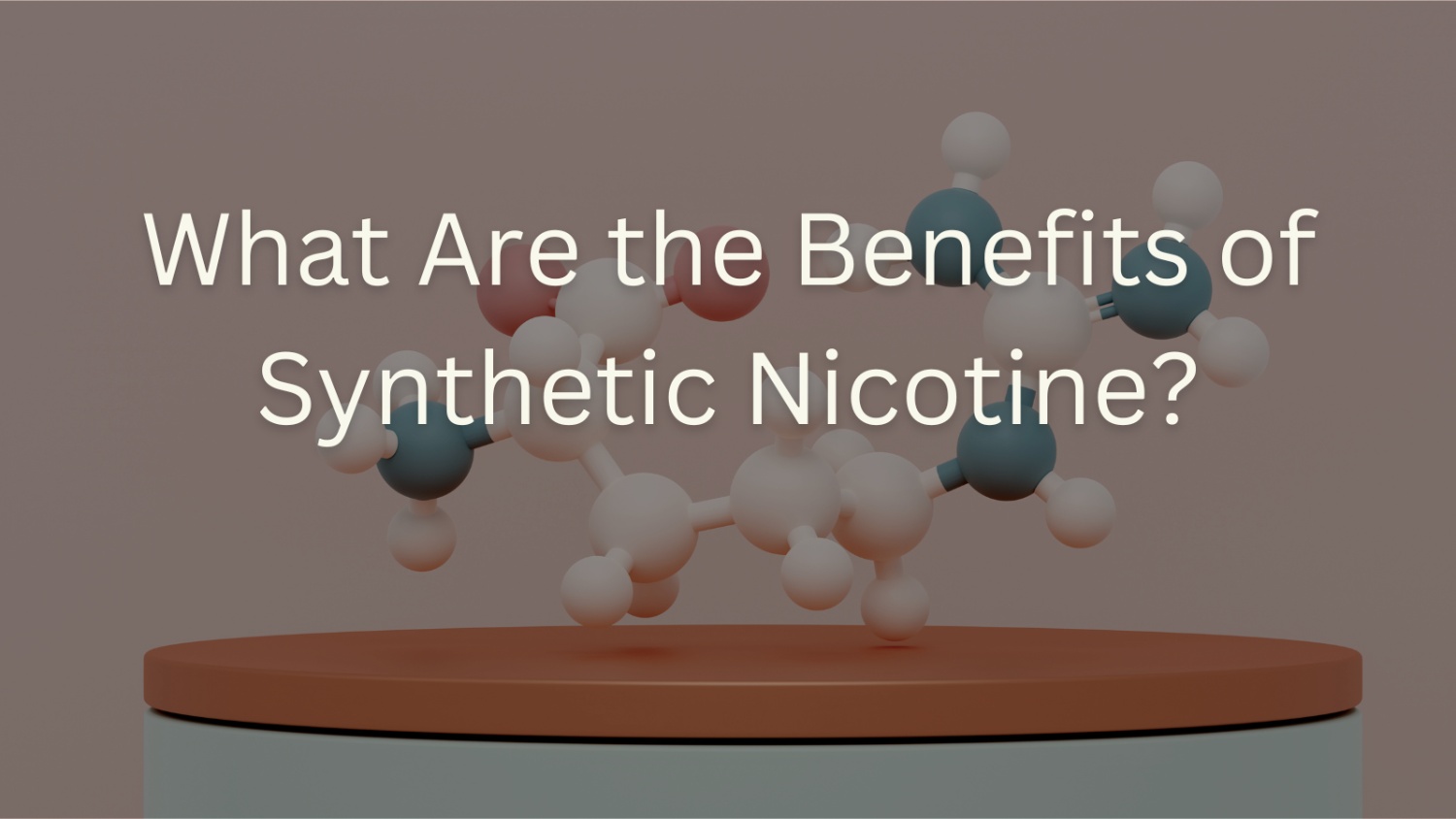When looking at the nicotine products available in today’s market, no discussion is complete without including pharmaceutical-grade synthetic nicotine. Since its recent emergence, this innovation has set itself apart from traditional tobacco plant-derived nicotine by being lab-grown instead.
But what does that mean for the consumer? And what are the benefits? Find out with us below:
- What is it?
Pharmaceutical-grade synthetic nicotine is nicotine produced in a laboratory setting through chemical synthesis. This means there is more control over the product’s quality, composition, purity and potency.
- Why is that important?
The ability to define the characteristics of pharmaceutical-grade synthetic nicotine is important because it allows for the creation of a purified form of nicotine without the harmful byproducts, impurities, contaminants or unwanted ingredients associated with tobacco combustion.

This safer synthetic nicotine can then be used in many harm-reduction products and nicotine delivery systems – including e-cigarettes, nicotine patches, and nicotine gums.
- How is the quality controlled?
Synthetic nicotine can only be labelled “pharmaceutical-grade” once it can prove that it has met the strict criteria and regulatory requirements set by established organisations such as the United States Pharmacopeia (USP) or Good Manufacturing Practices (GMP).
It is only once synthetic nicotine has gained this label that it can be used for medical purposes, harm reduction products, and nicotine replacement therapies.
- Is this the future of nicotine?
While nicotine harm reduction products are already much lower on the risk continuum than tobacco products and, especially, tobacco-based cigarettes, pharmaceutical-grade synthetic nicotine provides an even safer, more controlled and rigorously tested alternative.
The continued popularity of this alternative can also help combat misconceptions and alleviate irrational fears surrounding nicotine. Therefore, it is important to continually increase the interest, research, and awareness surrounding pharmaceutical-grade synthetic nicotine as an important harm-reduction tool.
THR Topics
Popular Posts
Quick Links
Women in THR
Related Posts
 Letter to the World Health Organization (WHO)
Letter to the World Health Organization (WHO)
Letter to the World Health Organization (WHO)
 Public Health implications of vaping in Germany
Public Health implications of vaping in Germany
Public Health implications of vaping in Germany
 Public Health implications of vaping in the United States of America
Public Health implications of vaping in the United States of America








